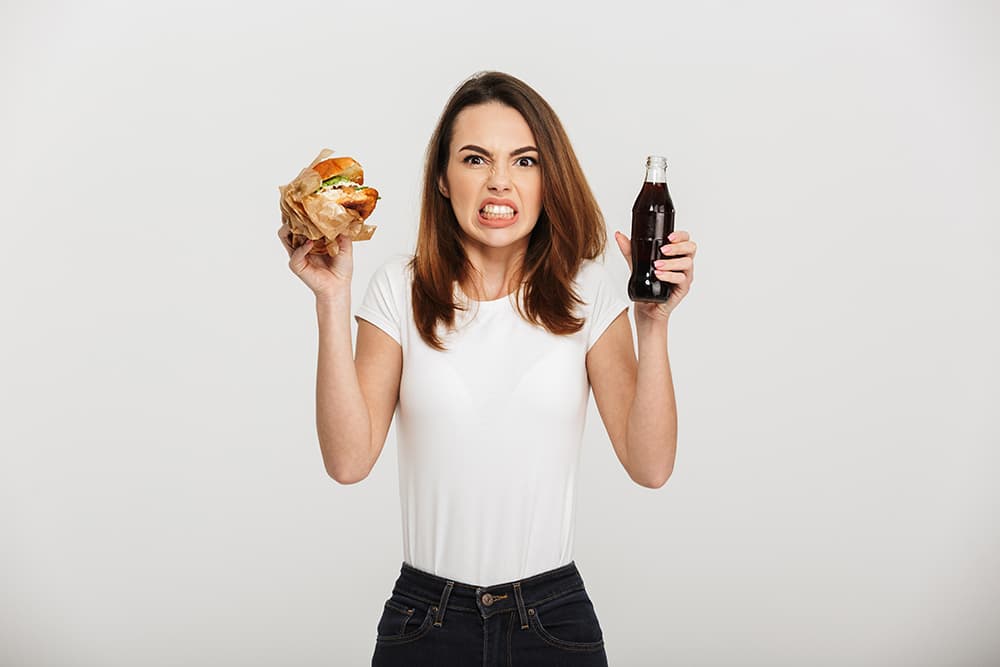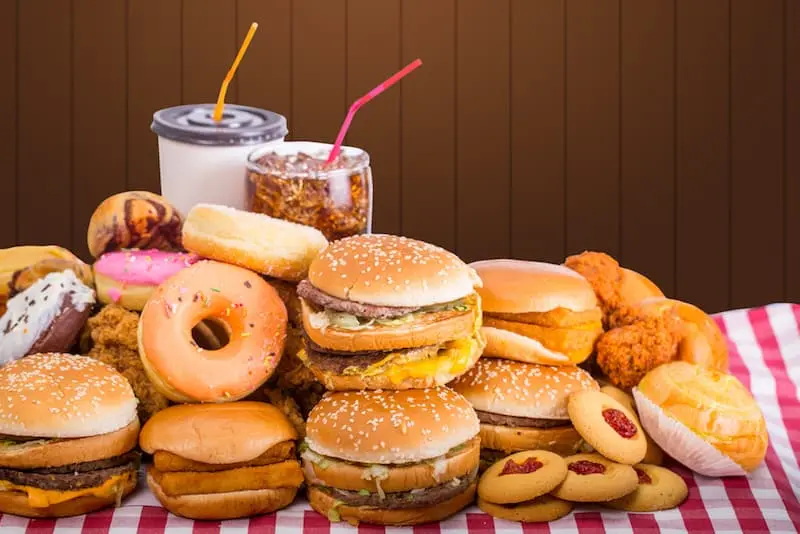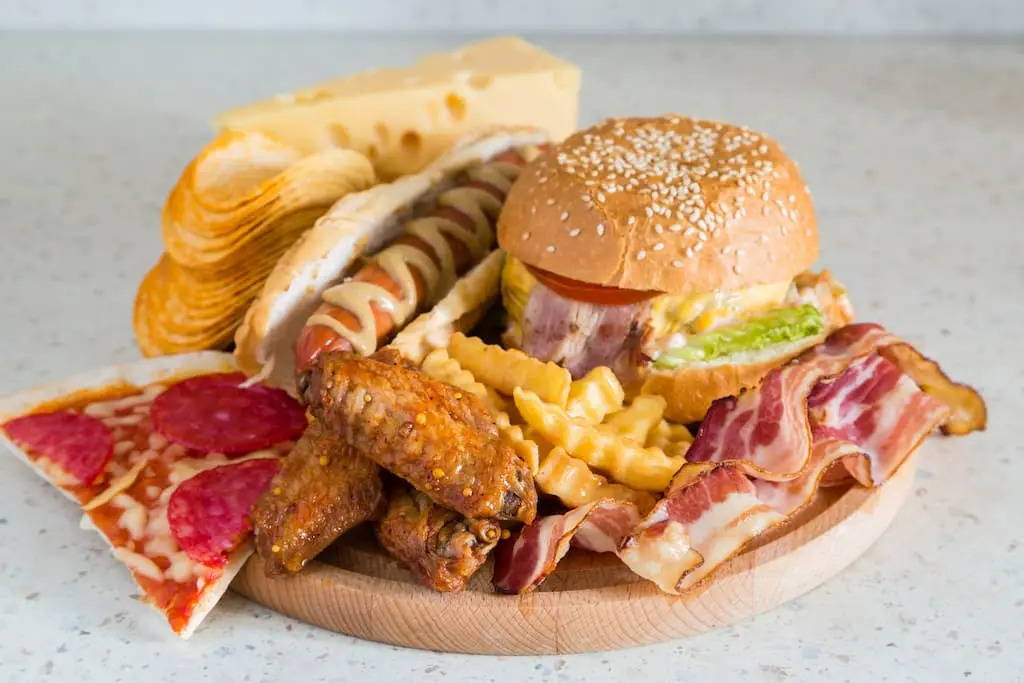What Are Processed Foods?

November 2, 2018

If you actively try to live a healthy lifestyle then you probably already know that a healthy diet means eating wholesome, nutritious food and trying to minimise consumption of processed foods where possible.
But what exactly are processed foods? Are they really that bad for you? And how can you make healthier choices instead of processed foods?Jump to:
In this article, learn more about processed foods and why they can be causing harm to your health.
What are processed foods?
Processed foods refer to foods that has been in any way changed from their original form. However, there is a difference between foods that have been minimally processed and those that have been highly processed.
Therefore, a processed food could be something which is obviously highly processed, like a donut. It could also include something minimally processed that appears healthy, like diced pineapple that has been chopped up and packaged.
Keeping this definition in mind, it can be easy to understand why some foods, even though they are thought of as healthy items, are still classified as processed food.
Because of this, it’s important to remember that not all processed foods are bad for you.
When we discuss processed foods being unhealthy, we generally aren’t talking about nutritious food that has been mildly adapted to make it edible, such as milk or cut-up fruit. Instead, what processed foods refers to are foods that have been signficantly altered from their original state.
Examples of processed foods
Examples of processed foods include:
Breakfast cereals
Muesli bars
Microwave-ready meals
Fruit juices
Low-fat yoghurt
Deli meats
While the line can get a bit blurry about what is processed and what isn’t, try thinking of it like this: the more a product has changed from its original natural form or has had additional ingredients added, the more likely it is that it’s highly processed and not the healthiest option for you.

Why are processed foods bad for you?
At the end of the day, most processed foods are made by companies that are trying to make tasty food and also profit from their business. To do this, they will often look for cost-effective ways to manufacture food, which may include using additives in their food, as well as other unhealthy ingredients, to make it more appealing or to help stretch its shelf life further.
If you've ever asked yourself, "Why are processed foods bad for my health?", then here are four main reasons why!
1. Processed foods can contain artificial chemical ingredients
Nearly all processed food contains artificial chemicals. These chemicals might be added to increase the life of the product, to enhance its taste, or to alter the way the product looks.
Have you ever looked at the back of a packaged food product and felt confused by the complicated and long-worded ingredients? The reason for your confusion is because these ingredients are usually artificial chemicals that have been added to preserve the food or enhance its flavour. This can also make the food more addictive, causing you to keep coming back for more! Haven’t you wondered why you can’t ever stop at one potato chip?!
Artificial chemicals can be found in a range of foods, not just ‘junk’ food. In fact, you are likely to find that nearly all shelf food or packaged food (like those ‘healthy’ meals that can be kept in the freezer) contain at least some artificial ingredients, especially as a way to help preserve their shelf life.
2. Processed foods can contain hidden sugars
As we know, excess sugar consumption can be really harmful for your health and we should aim to cut back on sugar wherever we can. While some food is obviously high in sugar (hello, block of chocolate!), the danger with all processed food is that it often contains hidden sugars. Even those foods that don’t taste sweet in any way are likely to contain some sort of added sugar. A huge issue with this is also the fact that a lot of the time, these sugars can be hidden behind different names.
There are more than 60 different names for sugar that can be listed on food labels! Some of the most common ones include:
Sucrose
High-fructose syrup
Barley malt
Dextrose
Rice syrup
Corn syrup
Fructose
Glucose
Agave nectar
So next time you go to buy your groceries, have a look at the ingredients list in the food you’re buying and count how many added sugars there are hidden there!
With all these different names for sugar, manufacturers are able to include a few in different parts of the ingredients list, usually towards the end, so it seems like the product doesn’t contain so much sugar. When all the sugars are added up though, they could almost end up being the main ingredient!
Added sugars generally have no nutritional benefits, can wreak havoc on your digestive health, and are simply empty calories. They can also be addictive, which means you may crave other sugary food soon after consuming.

3. Processed food can contain bad fats
While some fats are good for us, trans fats are the unhealthy fats that we should avoid consuming. Quite often, whether it be to reduce production costs or to increase shelf-life, manufacturers can use unhealthy oils (such as some vegetable oils) and trans fats. Consuming these kinds of fat in excess can lead to heart disease, increased inflammation and may create a range of other health issues.
4. Processed food can contain fewer nutrients
If you eat a lot of processed food, you are less likely to be receiving the nutrients you require to help keep your health on track. As mentioned before, this often comes down to cost when manufacturing— it might be more cost-effective to include artificial chemicals to enhance flavour, rather than natural food. In addition to this, as the food is being processed, many nutrients are often filtered away during the manufacturing process.
That is why we always recommend eating wholemeal breads, pasta and cereals, rather than refined white bread or pasta. Wholemeal varieties are closer to their natural state, which means they contain more of the important nutrients that your body needs.

How to make healthier food choices
You can eat less processed foods by asking yourself:
Does your food resemble its natural state? If it doesn’t look like its natural form (for example, a hot dog does not resemble lean meat!), then it is likely that it has either been chemically treated or contains a range of other unhealthy ingredients that have been included to preserve it.
Is the food packaged and does it contain a range of ingredients listed on the packaging? Be mindful of the things we’ve mentioned above, such as added sugars and artificial chemical ingredients. Even if something seems like a natural food, like a carton of coconut milk, quite often these packaged items can contain hidden nasties, like what we’ve mentioned above. If there is a long list of ingredients on the back of your food package, especially if you can’t recognise what most of those ingredients are, then it is likely to be highly processed.
Other simple ways to try and cut down on processed food includes making your meals from scratch whenever you can (creating a weekly meal plan can help you to stay organised and avoid buying processed food or take away when you’re short on time), as well as being mindful of the choices that you make when it comes to purchasing packaged goods during your food shopping.
Should I cut out processed foods altogether?
Remember, not all processed foods are unhealthy — it’s just about making the right choices for you by knowing what ingredients are in the food you’re eating.
In today’s society, it is nearly impossible to completely eliminate processed foods from your diet. However, you can be more mindful about your choices by taking note of the points discussed above.
What tips do you have for limiting the processed foods you consume? What do you do to keep on track with your healthy eating? Let us know in the comments below!

A more empowered you starts with Sweat, and our editorial team is here to bring you the latest fitness tips, trainer recommendations, wellbeing news, nutritional advice, nourishing recipes and free workouts.
* Disclaimer: This blog post is not intended to replace the advice of a medical professional. The above information should not be used to diagnose, treat, or prevent any disease or medical condition. Please consult your doctor before making any changes to your diet, sleep methods, daily activity, or fitness routine. Sweat assumes no responsibility for any personal injury or damage sustained by any recommendations, opinions, or advice given in this article.
Nutrition